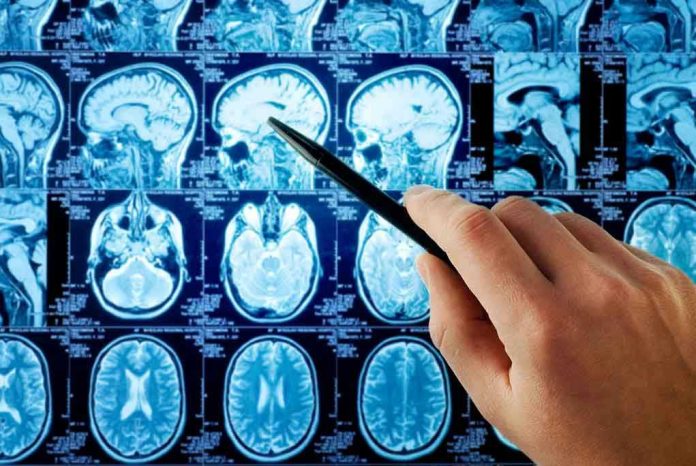
Did you know that three sneaky habits could be making your brain age faster than a banana left in the sun?
At a Glance
- Dementia and Alzheimer’s are increasingly common due to aging populations.
- Three lifestyle habits are linked to accelerated brain aging.
- Women are nearly twice as likely as men to develop Alzheimer’s.
- Research highlights lifestyle changes as key intervention points.
Understanding Brain Aging and Dementia
Dementia, including Alzheimer’s disease, is like that uninvited relative who shows up at your door and refuses to leave. It’s the unkind thief of memories, and as history unfolds, its prevalence is increasing. Thanks to Dr. Alois Alzheimer’s identification in 1906, we’re able to put a name to this cognitive decline. Fast forward to today, and the numbers are staggering. By 2025, approximately 7.2 million Americans aged 65 and older will be living with Alzheimer’s dementia, and the projections are even more daunting for 2050.
The aging baby boomer generation has played a significant role in this upsurge, with more frequent diagnoses due to better awareness and diagnostic criteria. But here’s where it gets interesting: lifestyle factors, such as diet and exercise, have emerged as crucial players in the dementia risk game.
The Three Habits That Age Your Brain
In a world where the battle of the bulge and the quest for the fountain of youth are never-ending, it turns out that some of our daily habits could be fast-tracking our brains to early retirement. The culprits? A sedentary lifestyle, poor diet, and lack of sufficient sleep. Picture this: your brain is like a high-performance sports car. Feed it the wrong fuel, skip a few oil changes, and never take it for a spin, and soon it’ll be sputtering along like an old jalopy.
Physical inactivity is a well-documented villain. It’s the sedentary lifestyle that has us glued to our screens, binge-watching shows, and thinking that relocating from the couch to the fridge qualifies as exercise. A poor diet, heavy on processed foods and light on nutrients, does no favors, either. Finally, good sleep and cardiovascular health isn’t just about keeping the ticker in tip-top shape; it’s about ensuring our brains get the blood flow they need to function at their best.
The Impact on Society and Healthcare
The financial and emotional toll of dementia is like a heavyweight champion that refuses to be knocked out. Families and caregivers are in the ring, battling the economic burdens and emotional strain. In the U.S. alone, Alzheimer’s ranks as a leading cause of death among older adults. It’s not just families feeling the punch; healthcare systems are reeling too, with workforce shortages and rising costs.
Women, particularly, seem to be in the crosshairs of this disease. Nearly twice as likely as men to develop Alzheimer’s, partly due to longer life expectancies and potential hormonal factors, they’re at the forefront of this battle. Racial disparities exacerbate the issue, with older Black and Hispanic Americans facing higher risks compared to their White counterparts.
Hope Through Research and Lifestyle Changes
But don’t hang up your gloves just yet. There’s hope, and it lies in research and lifestyle changes. Experts agree that early intervention and lifestyle modifications are crucial. Think of it as a strategic play in the game of cognitive chess. Regular physical activity, a balanced diet, and managing cardiovascular health are key moves that can delay or reduce dementia risk.
The Alzheimer’s Association and NIH are championing these efforts, pushing for more funding, better policies, and increased public awareness. Meanwhile, the pharmaceutical and biotech sectors are investing heavily in developing treatments and diagnostics. While some alternative treatments like medical marijuana are being explored, mainstream medical opinion emphasizes evidence-based interventions.
Sources:
NCHStats Alzheimer’s Disease in the US 2025
Alzheimer’s Association 2025 Facts and Figures
Alzheimer’s Association Facts and Figures




